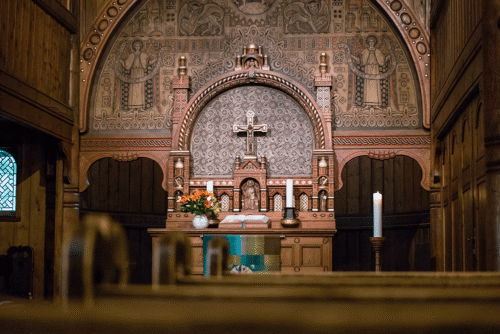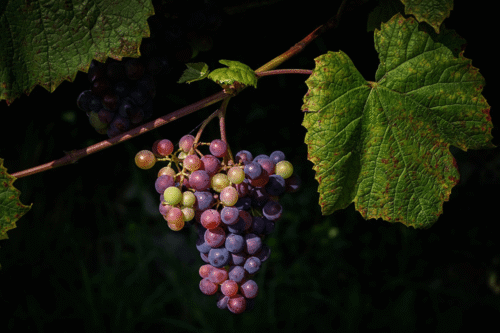
天主的神妙作为
各位弟兄姐妹:
在今天的弥撒福音中,主耶稣给我们讲了一个“葡萄园户的比喻”。他在讲完这个比喻后,对听他讲话的人说:“匠人弃而不用的石头,反而成了屋角的基石,那是上主的所行所为,在我们眼中神妙莫测。”(玛21:42)现在我就以“天主的神妙作为”为道理题目,跟大家分享今天弥撒的读经。
一、完美安排园子租园户
主耶稣在“葡萄园户的比喻”中说:从前有一个家主,培植了一个葡萄园,周围围上篱笆,园内掘了一个榨酒池,筑了一个守望台,把它租给园户,就离开了本国。
这个比喻中的“家主”是指“天主圣父”;“葡萄园”是指“以色列子民”;“篱笆”表示天主一直保护以色列子民;“榨酒池”表示天主对以色列子民的培植;“守望台”既可以作为职工的宿舍,又可作“了望台”,高瞻远瞩,确保葡萄园的安全。“园户”是指代表犹太人的宗教领袖。由此可知,家主为自己的葡萄园准备的设施是一应俱全,考虑得十分周密,安排得非常完美。
因此这比喻告诉我们:天主给我们人类所准备的一切都是非常美好的,对我们人类的照顾是无微不至的;为我们人类的生存,祂给我们的恩典是足够的,即使我们有时感到缺少,感到痛苦和不幸等,但这一切的一切最终都会给我们带来美好的结果。
有一个寓言故事《一切都是最好的安排》说的是:从前有一个国家,他们有一位受人拥戴的好国王和兢兢业业的好宰相,那个宰相最常挂在嘴上的一句话就是“一切都是最好的安排”。
有一天,国王出去打猎,他射中了一只花豹,那只花豹惨叫一声倒在地上。国王很开心地走过去看,不料那只花豹突然跳起来扑向国王,结果国王的小指头被花豹咬掉了半截,血流不止。回宫以后,国王越想越不痛快,就找宰相一起喝酒解愁。
那宰相一边给国王敬酒,一边微笑说:“国王啊!少了一块肉总比少了一条命来得好吧!一切都是最好的安排。”国王一听,很不高兴,就对宰相说:“如果我把你关进监狱,这也是最好的安排?”宰相微笑说:“如果这样,我也深信这是最好的安排。”国王听后更加愤怒,就真的把宰相关进了监狱。
过了一个月,国王的手指好了,就出去微服私访,结果被一群部落的人抓到了山上。他们打算把那国王杀了祭献给满月女神,可当他们检查那国王的身体时,发现他的小指头少了半截,就把他放了。原来他们祭祀满月女神的祭品不能残缺不全。
脱离了险境的国王大喜若狂地跑回宫里,立刻叫人把宰相给放了,并在御花园中设宴庆祝自己脱险,也庆祝宰相重获自由。国王向宰相敬酒说:“你说的真是一点也不错,一切都是最好的安排。可你无缘无故在监狱里蹲了一个月,这又怎么说呢?”宰相喝了一口酒说:“国王,你把我关在监狱里,确实也是最好的安排。您想想看,如果我不是在监狱里,那么陪伴您微服私访的人,不是我还有谁呢?等到那些部落人发现国王不适合拿来祭祀满月女神时,谁会被丢进大锅炉里烹煮呢?不是我还有谁呢?所以,我要为国王将我关进监狱而向您敬酒,您也救了我一命啊!”国王忍不住哈哈大笑,大声说:“干杯!果然没错,一切都是最好的安排!”
圣保禄宗徒也说:“天主使一切协助那些爱他的人,就是那些按他的旨意蒙召的人,获得益处。”(罗8:28)
二、仁慈宽忍恩待凶恶人
圣经上说,当快到收果子的时候,葡萄园的主人就打发仆人到园户那里去收果子。园户们将一个仆人鞭打了,将一个杀了,将另一个用石头砸死了。主人再打发更多的仆人去,园户们也一样对待了他们。最后他打发自己的儿子到他们那里去,认为他们会敬重他的儿子。但园户们一看见主人的儿子,就彼此说:这是继承人;来!我们杀掉他,我们就能得到他的产业。于是他们拿住他,把他推到园外杀了。
这段圣经经文告诉了我们,犹太人的宗教领袖们的残忍、忘恩负义,他们不但谋杀了天主派来“收果子”的仆人——先知们,而且连天主派来的亲生子——耶稣基督,也被“推到园外”杀了,也就是被押送到耶路撒冷城外的加尔瓦略山上钉死了。
各位教友,也许你们会说:耶稣说的这个比喻太不近人情了;世上哪会有这么一个糊涂的葡萄园主人,一而再,再而三,派遣自己的仆人,手无寸铁,毫无防备地去送死,更不会派自己的爱子去冒生命的危险。是的,依人情而论,这是不可能的事,但天主却为人做了这样的事,做了我们人不可能做到的事,做了我们人认为是糊涂的事。
圣若望宗徒说,天主父“祂竟这样爱了世界,甚至赐下自己的独生子,使凡信他的人,不致丧亡,反而获得永生。”(若2:16)
圣伯多禄宗徒也对我们说:“亲爱的诸位,惟有这一件事你们不可忘记:就是……他对你们含忍,不愿任何人丧亡,只愿众人回心转意。”(伯后3:9)
因此,这段圣经经文也显示了天主的仁慈宽忍,天主一而再,再而三的对罪人的仁慈宽忍。
三、按时缴纳出产得园子
天主既是至仁慈的,也是至公义的。家主的仆人和他唯一的儿子都被谋杀后,家主开始亲自出面“兴师问罪”。耶稣在比喻中,并没有说出家主如何处罚园户,只问在场的人说:“当葡萄园的主人来时,他要怎样处置那些园户呢?”他们回答说:“他要毫不留情地消灭那些恶人,把葡萄园另租给按时缴纳出产的园户。”(玛21:41—42)。耶稣为肯定他们的回答,就加上一句说:“我对你们说:天主的国,必由你们中夺去,而交给结果子的外邦人。”(玛21:43)
从主耶稣对在场的司祭和法利赛人讲的这段话中,主耶稣告诉我们,要成为天主的子民,要想得天国,必须要结出好果子,按时缴纳出产。那我们该结出什么样的好果子呢?
在今天弥撒的读经二斐理伯书(4:6—9)中,圣保禄宗徒告诉了我们:
一是要结出祈祷感恩的果子:“你们什么也不要挂虑,只在一切事上,以恳求和祈祷,怀着感谢之心,向天主呈上你们的请求。”(6节)
二是要结出各种美德的果子:“凡是高尚的,凡是正义的,凡是纯洁的,凡是可爱的,凡是荣誉的,不管是美德,不管是称誉:这一切你们都该思念。” (8节)
三是要结出实行福音的果子:“凡你们在我身上所学得的,所领受的,所听见的,所看到的:这一切你们都该实行”(9节)。斐理伯人在保禄身上所学得的、所领受的、所听见的、所看到的无非是他所宣讲的耶稣的福音,因此,保禄宗徒劝告斐理伯人要把耶稣的福音在日常生活中实行出来。实行耶稣福音的结果是结出圣神的果子,即:仁爱、喜乐、平安、忍耐、良善、温和、忠信、柔和和节制(迦5:22—23)。
圣保禄宗徒说,如果我们这样做了,“天主那超乎各种意想的平安,必要在基督耶稣内固守你们的心思念虑”;“赐平安的天主必与你们同在”。这样,我们才算是按时缴纳出产给天父的园户,天父才能把天国赐给我们。
结语:
各位弟兄姐妹,天主的作为神妙莫测,祂安排的一切都是完美的;祂恩待我们罪人仁慈宽忍;只要我们按时缴纳出产,结出相称的果子,必能获得天国的赏报。愿至美善的、至仁慈的主耶稣与你们同在,并降福你们!阿门!

The fruitful shall inherit the Kingdom of God
Brothers and Sisters in Christ,
Good evening! Tonight, when listening to the readings, we heard similarities between the First Reading from the Book of Isaiah [Is. 5:1-7] and the reading from the Gospel of Matthew. [Mt. 21:33-43] Both spoke on the same subject in different ways. The Book of Isaiah referred to this subject as “The Song of the Unfruitful Vineyard” while the Gospel of Matthew referred to it as “The Parable of the Wicked Tenants.”
When carefully reviewing these two readings, two meanings can be perceived from what was read. While both meanings are prophetic, the first is worldly in nature, the second being spiritual in nature, transcending all times. Both of these meanings will be reviewed so you may gain a broader insight on the Word of God.
To understand who the Wicked Tenants were in the Parable that Jesus gave, it is necessary to know who Jesus was speaking to. When Jesus gave the Parable of the Wicked Tenants, He was prophetically addressing the chief priests and the Pharisees who were present. This truth is supported by the details that are found in the different Gospels on the subject of the Passion of Jesus where we learn that it was the chief priests and the Pharisees who condemned Jesus to death.
The vineyard represents Israel, the chosen people of God that had been freed from captivity, led to the land of promises and received endless blessings from the Lord. The landowner is the Lord God who owns the chosen people. They are His people.
When we are told that at harvest time, the landowner sent his slaves to the tenants to collect his produce, we are told that when God expected righteousness from His people in return for His blessings, He sent the prophets. The tenants, the chief priests and Pharisees, seized the prophets, beat one, killed another and stoned another. All the prophets that were sent by God, one by one, received equal treatment. [Mt. 23:29-31]
Finally, the landowner, God, sent His only beloved Son Jesus to them, saying, “They will respect my Son.” Rather than believing and accepting the teachings of Jesus as the Son of God and the promised Messiah, the chief priests and the Pharisees plotted against Him also and killed Him. Why did they plot against Jesus and kill Him? It is because the chief priests and the Pharisees saw the crowds of thousands of people who were following Jesus to hear His Word. They saw the influence that Jesus had on the people. They witnessed the manifestation of the power of the Holy Spirit in Jesus. They feared the arrival of the Kingdom of God that Jesus was preaching, a Kingdom that would take away their dishonest positions of glories and honours.
Today’s Gospel Reading ended with the words, “Therefore I tell you, the Kingdom of God will be… given to a people that produces the fruits of the Kingdom.” [Mt. 21:43] The fruits of the Kingdom are the fruits of the Holy Spirit. They are “love, peace, patience, kindness, generosity, faithfulness, gentleness, and self-control. There is no law against such things.” [Gal. 5:22-23]
The fruits of the Kingdom are like a checklist. We can easily read what is permissible and what is not permissible, asking ourselves after each word and answering either “Yes!” or “No!” Do I shine in love towards everyone? “Yes!” or “No!” Do I make peace with others and encourage others to make peace? “Yes!” or “No!” Do I display patience in all things, at home, at work, with my peers? “Yes!” or “No!”
This week, let us all take a few moments to review our status before God, asking ourselves if we will inherit the Kingdom of God. If we fall short of manifesting the holy ways of God, let us renew our commitment to persevere in our living faith in Christ through a sincere repentance and the reception of the Sacraments. May the grace of God be with each and everyone of you as you assess your spiritual status in the eyes of God.

